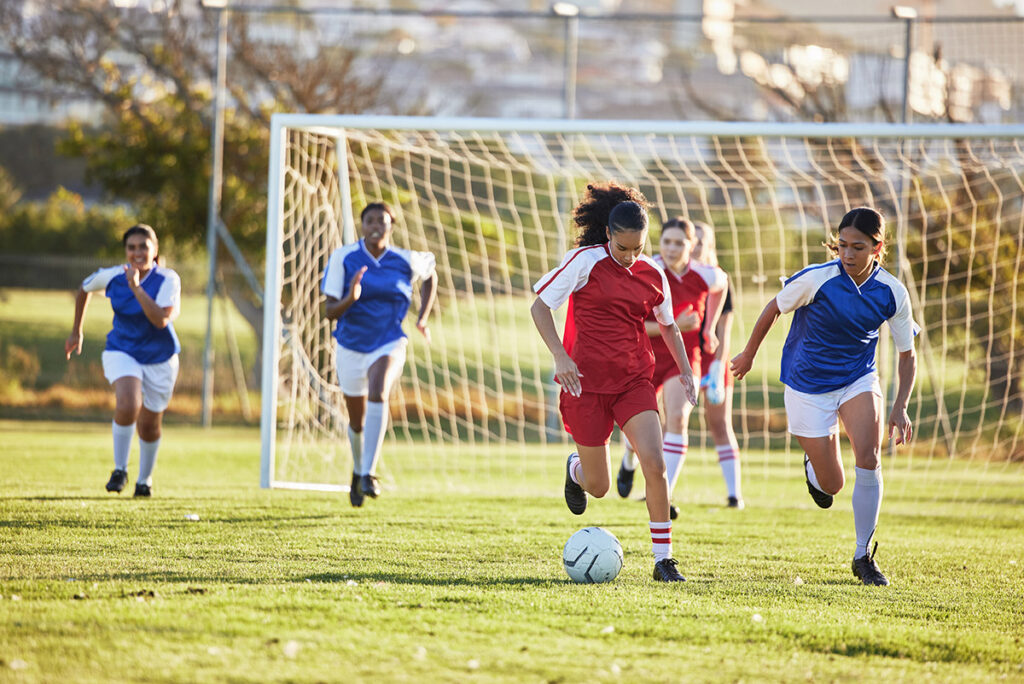Sports are a big part of culture around the world and everyone knows that injuries can happen, but do their best to avoid or minimize their severity and risk. Unfortunately, concussions do happen frequently in athletics, and when they do, it’s important to know how to handle them to not let them develop into more serious and life-threatening brain injuries.
If a sports concussion is suspected and the player insists on wanting to return to playing sports or the game, the risks should be heavily underscored, though athletes who have a suspected concussion should not be allowed to return to the game or activity.
What is a Concussion: Their Effects and How They Occur
A concussion is a mild traumatic brain injury that affects brain function, usually, short-term effects are the extent of the injury, but it can also lead to more serious issues if not properly addressed. The reason concussions are risky in sports and more common in contact sports like football, rugby, and hockey, is because they’re caused by impact to the head. This doesn’t mean that every blow to the head results in a concussion, but any player who has been struck in the head should be checked for one.
Concussions aren’t visible physically, while there can be other injuries that can mean a concussion is likely, the injury itself is invisible which can make it difficult to notice without being familiar with its subtle symptoms. The symptoms of concussions can last for days, weeks, or even longer, and can include:
- Blurry vision
- Memory loss and amnesia around the impact event
headaches - A ringing in the ears
- Nausea and vomiting
- Drowsiness
- Confusion
- Dizziness or “seeing stars”
- Slurred speech
Some symptoms may appear days after the event, these can include:
- Light and sound sensitivity
- Changes in taste and smell
- Trouble with concentration and memory
- Irritability
- Personality changes
Risks of Exercise or Sports
Activity With a Concussion
When a concussion is suspected, some athletes and sports players may insist they’re fine and want to get back to the game, even if no symptoms are readily apparent. However, if there was a head impact and the player hasn’t been checked for a concussion, returning to play poses significant risks.
- Second Impact Syndrome: If an athlete sustains a second concussion before the first one has fully healed, it can lead to a rare but potentially fatal condition called second impact syndrome, where rapid brain swelling occurs.
- Prolonged Recovery: Continuing to play with a concussion can prolong the recovery process, causing symptoms to worsen. Ignoring symptoms and returning to play too soon can delay recovery significantly and risk life-threatening conditions.
- Increased Severity of Symptoms: Playing with a concussion can worsen symptoms such as headache, dizziness, nausea, confusion, and sensitivity to light and noise. These symptoms can interfere with performance and increase the risk of further injury elsewhere.
- Increased Risk of Additional Injuries: Concussion symptoms can impair judgment, coordination, and reaction time, increasing the risk of other injuries such as sprains, fractures, or more severe head injuries.
- Long-Term Brain Damage: Multiple concussions, especially if they occur close together, can lead to long-term cognitive impairment, mood disorders, and neurological conditions like chronic traumatic encephalopathy (CTE).
- Decreased Academic Performance: Concussion symptoms can also affect cognitive function, memory, and concentration, which can impact academic performance and daily functioning long-term.
What to Do If a Concussion in Athletes is Suspected
There are three things to do if athletes suspect they have a concussion:
- STOP: whether in the middle of a big football, basketball, or soccer game or practice, stop playing immediately.
- Tell someone and describe what you’re feeling as honestly and accurately as you’re able.
- Don’t return to the game until you’ve been examined by a medical professional and given permission.
How to Prevent a Concussion
To prevent a concussion, there are a few strategies athletes and coaches can adopt to help minimize the risk:
- Enforce proper head equipment when playing and ensure they fit properly
- Ensure all helmets are checked and maintained before playing
- Follow the rules of the sports, many of them are designed with safety in mind
- Practice balance and coordination through specific exercises to help reduce the risk of falls and head injuries
- Take any head injuries seriously and seek medical attention immediately
Tips to Help Recover from Concussions
If an athlete has suffered a concussion, there are some methods to help speed recovery or, at least, to ease symptoms:
- Avoid physical activities like push-ups, running, and sports until permitted by a medical professional.
- Avoid screen time for the first 24-48 hours, including computers and texting/smartphones
- Keep a regular sleep schedule
- If a teenager or younger, avoid dances, pep rallies, and other situations that aggravate symptoms
- Follow the doctor and athletic trainer’s advice
At Proliance Puget Sound Orthopaedics, we provide best-in-class orthopedic care to our community with compassion, caring, and dedicated expertise for concussions and other sports-related injuries. If you’re suffering from any of the symptoms listed previously or need treatment, we encourage you to call (253) 830 – 5200 or request an appointment online to see one of our physicians.



